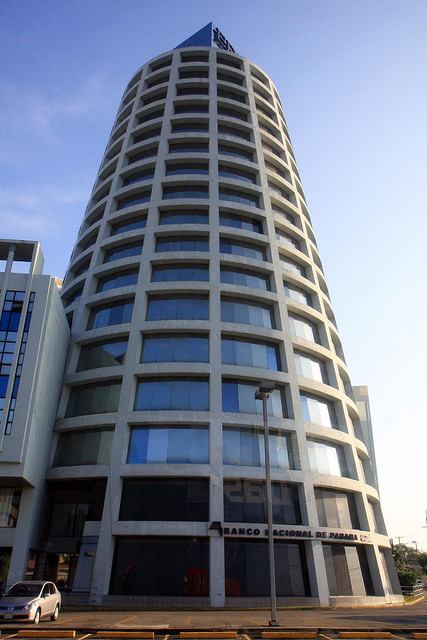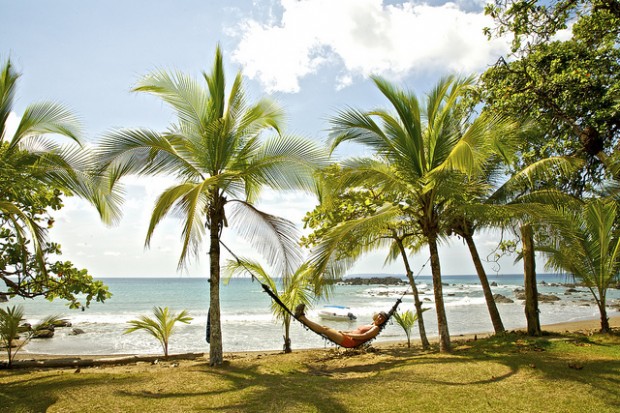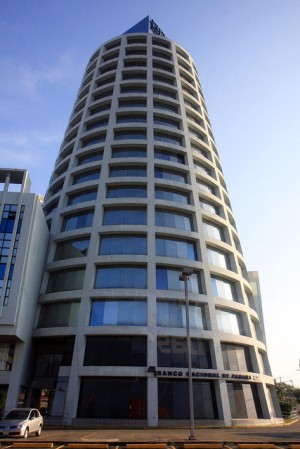Why Invest Offshore
U.S. citizens have always been a little shy about offshore banking, unless they’re in that upper income bracket, moving millions and even billions of dollars around, tucking them away in stable banks and tax shelter havens. Middle class America, with modest portfolios, are more hesitant, and prefer to keep their assets with a local bank, close to home, where they can keep an eye on things.
While the caution is understood, in recent years, many frustrated middle class investors and homeowners have noticed their carefully cultivated portfolios aren’t growing; or worse, are even shrinking.
Traditional Offshore Banking
The first offshore jurisdiction to come to the average person’s mind, is Switzerland. The Union Bank of Switzerland (UBS), located in Basel and Zurich, Switzerland, however, was among the European banks to suffer some of the largest losses during the subprime mortgage crisis, necessitating the general stable banking institution to generate large amounts of capital from outside sources.
Criticizing the enormous world bank’s policy of privacy to its investors, the U.S. government has pressured Switzerland into more information sharing among U.S. account holders, for the purposes of detecting tax evasion. The complaint, which was joined by several countries in the European Union, resulted in more stringent laws concerning U.S. and European deposits. Although Switzerland has agreed to more effective tax cooperation, opening an account in Switzerland can be difficult and expensive.
The power of the Euro faces as much uncertainty as the American dollar, with as many weaknesses in the banking structure. Investment in cargo ships has sent many of the banks reeling. A cargo ship valued at $150 million in 2009, will not fetch more than $40 million now. With the shipping industry going for bust, European banks are facing a potential loss of $350 billion dollars in loans.
Canadian banks are not much different than American banks. While somewhat more stable, growth rate for your investment is slow, interest rates on loans are high, stocks even higher, and the labor market has stalled.
The Japanese yen has crawled back into recession.
The Significance of the Emerging Nations
The BRIC nations; Russia, India, China, and Brazil, have been under the watchful eye of financial advisors and investors for several years. Leading investment banking institutions, such as Goldman Sachs, estimate that the economies of these four nations will be wealthier than most Western countries within fifty years.
Investing in an overseas bank, however, is a major step. It’s always best to visit the country you wish to invest in, and China, India or Russia seem a little extreme to most modest investors. However, Latin America is right next door.
Many of the Latin American countries have changed their policies to a more open and friendly relationship with U.S. citizens wishing to visit or invest in a little south of the border real estate. These once war-conflicted countries have enjoyed increased stability under democratic governments and responsible fiscal policies stimulating a burst in retail growth.
Although Brazil has dominated the economic market, the united efforts of the Central American countries to maintain favorable investment options, has created a surge in real estate options. High end investors led the charge, with interests in a second or third home on a tropical beach, but Central American investment can be started with as little as $1,000.
Panama and The Highlight of Central America
With so many beautiful countries to choose from, it can be difficult to decide which one you want to dedicate to for your offshore investment. They all offer spectacular views, good banking policies and a rich and varied culture. A Panama bank account, however, is one of the most desirable in the world today.
With over 80 international banks, it has been placed among the world’s largest banking sectors. Three of Panama’s banks were featured in the top 1000 world banks for 2012. The leading banks in Panama and their positions are:
- No. 524 Banco General
- No. 663 Banco Latinoamericano de Exportaciones
- No. 789 Banco Nacional de Panama
Living It Up in Panama
Besides an expanded canal that has brought millions of dollars in revenue to the Panama economy and a sophisticated modern city, there are several reasons for its increased popularity. There are no corporate or personal taxes on offshore activity in Panama. You will not be double-taxed on your assets. All income earned outside Panama will not be taxed.
There is no conversion rate to foreign currency, or foreign currency controls. Panama uses the dollar. While Spanish is the primary language, most bank tellers and managers speak English. It offers online banking service, international wire transfer, and check service.
Panama is the top banking center in Central America. Its free market and investment-friendly policies have attracted a wide clientele, from retirees to entrepreneurs, to expats and adventurers.
Panama gives immediate residency to foreigners from 22 countries that maintain friendly, professional, economic and investment relationships with Panama. The United States is listed among these countries. Immediate foreign residents have the right to work in Panama, establish a business and engage in professional and economic activities. After five years of living in Panama, they may apply for full citizenship.
Perhaps one of its greatest advantages is its close proximity to the United States. You do not have to wonder how your offshore assets are doing. You do not have to travel halfway across the world.
If you move to Panama, you do not have to abandon the loved ones you left behind. A short plane trip, a hop on the bus or a drive in the car, and you can visit them, or more likely, they’ll wish to come and visit you!
Panama continues to be the best place to invest in if you’re thinking of an offshore bank. With a stable economy, easy access to your account, as well as a close circumference to the U.S., there simply is no greater advantage than investing in Panama.
If you don’t spend your nights jaunting around casinos, ordering martinis shaken, not stirred, and casually assassinating a whale or two on the way out then you’re probably not James Bond.
So if you’re not James Bond, and if you’re not a crook (we’re just going to cross our fingers and hope you aren’t…but if you are, thanks for reading!) then why would you need an offshore account? And what are the chances of you getting one without spending all the money that you want to put in it?
We’ve done some research for you and figured out the how’s, the where’s, the why’s and the who’s, because we’re here to help you out!
Why Bank Offshore?
Everyone has their own reasons: some do it because they are always travelling (and it just makes sense to put their money where they get the best benefits), some do it to avoid tax, some do it because they don’t trust their country’s economy (look at Zimbabwe, for instance) and some do it because what they’re doing is illegal.
Whatever the reason (let’s hope the latter isn’t it!), you’ve been thinking about putting some money overseas, and now you want to know the logistics.
How to open an offshore account?
Firstly, you have to realize that this is going to cost. So make sure you aren’t putting aside that $10 that your five year old son has been saving for the last two years. As to how much, that varies from country to country.
If you’re a U.S. citizen here’s a quick heads up: it is legal for you to invest your money overseas, but if it’s over $10,000 then you’ll have to declare it. Also, U.S. citizens are required to do a lot of paperwork or you could get into deep water. Be safe, and get someone who knows what they’re doing to help you out with dotting your i’s and crossing your t’s.
Logistically, you can do it all from your office desk. You don’t need to go to the country to open an offshore account. Through email and telephone you can complete the whole process these days. This, however is not ultimate. Rather make the trip, and build a rapport. And remember, if you haven’t been to the place, you should be thinking about the ‘who’.
Who to open an offshore account with?
Who are you investing your money with? In terms of a country as a whole, double check on their stability: a coup, an accounting scandal, or even something as innocent as a natural disaster could wipe out your entire investment. At least if you visit the place before you invest you’ll have a look at the functioning of that country: and if you get off the plane and into a civil war…well then maybe plan B wasn’t such a bad plan after all!
The country might be fine, but do remember this is a shady area of law. With shady areas come shady characters. It’s very important not to get mixed up in here too…how embarrassing to lose your investment because you deposited your money into the account of an arms dealer? Protect your reputation, and use a company that has a good one too.
Another nifty review of good legitimate banks is through Fitch Ratings. This website allows you to make a free profile with which you can check the ratings of banks from all over.
Where?

Photo by Steve Velo
It depends. I know you didn’t want me to say that, and that you wanted a ‘winner-takes-all’ answer, but here’s where you need to decide what you want.
You need to decide how secretive you want to be and how easy it is to track your account to you personally (by registering as a business entity, for instance) or whether you want an account that rather protects the account’s details itself.
If you choose a country which won’t disclose your information to the IRS, for instance, then the responsibility lies with you to declare it, or not. The Matador Network has made a list of the 10 Best Countries in which to open an offshore account, naming Panama as their number one.
If you follow this list, at least you know your money’s going to a beautiful place. And also, if you’ve been storing it for illegal reasons, you might end up here too! (I take that back. There’s no place for crooks in Panama, rather go invest in Cayman Islands. Or anywhere else. We only have good solid investment banks for good solid people folks.)
Most of all, be smart.
Good luck!
FATCA, or the Foreign Account Tax Compliance Act, was enacted in 2010 and has been in effect since January 2013. This Act was passed with good intentions: to target those who evade tax in the U.S. by not disclosing their offshore accounts to the IRS. That’s good, I thought, people must pay taxes or suffer the consequences.
And then I read on. The key provisions of FATCA force all global financial companies to report the details of U.S. account holders with more than $50,000 to the Internal Revenue Service (IRS), the U.S. tax authority. This is because the U.S. is one of the only countries to tax their citizens on their worldly income.
What does FATCA mean?
It means that Foreign Financial Institutes (FFIs) must act as pro bono tax collectors for the IRS, or suffer hefty penalties. It goes on to state that if a U.S. citizen refuses to give out these details then the FFI’s must impose a 30% tax on all payments/transfers associated with the account.
So already, if you’re an FFI, you can start to feel a little twitchy about dealing with FATCA. So what if all FFIs just ignore the whole thing? This Act seems to have thought of everything (but the prejudice it is creating!) and goes on to say that if an FFI doesn’t register with the IRS and comply with these provisions of reporting and taxing, that the FFI itself will be charged with 30% Withholding Tax.
World economics
It is (conservatively) estimated that FATCA will have an initial worldly cost of $10 billion, with the cost to a large global bank (like HSBC, for instance) staggering at $100 million. This looked at in the broader scheme of things where the IRS itself has estimated that FATCA will bring in less than a billion dollars in revenue.
It’s only natural that small FFIs are trying to exclude U.S. citizens from banking with them, while the larger banks are dealing with the logistical nightmare with deciding what constitutes a U.S./non-U.S. investor, and sharing that information about their investors to all international branches.
Legally speaking
Let’s talk about the legalities of it. FATCA itself, a U.S. piece of legislation, conflicts with the laws of other countries. In some countries the sharing of personal details (as required by FATCA) is illegal for a company to do. Companies who do not want to break the law may not be able to comply with FATCA, and will therefore be charged a Withholding Tax for being a legally abiding entity.
And this even if you are dealing with Non-U.S. transactions between Non-U.S. businesses not in the U.S., you must still conform to U.S. legislation. How is that logical? Simply, it’s not.
Another outcome from the Act could lead to U.S. taxes being imposed on international transactions. The International Swaps and Derivatives Association put it like this:
The pass-thru payment rules could potentially impose US withholding tax on an interest made by a British bank’s London office to a German bank’s Frankfurt office if the German bank is a non-participating FFI and the British bank is a participating FFI, providing the British bank holds any US assets in any of its global offices.
Such a transaction would require the British bank to withhold a 30% tax on the exchange.
There are lots of knitty-gritty, investor-jargon details on this, if you’d like to find out more: http://americansabroad.org/issues/fatca/fatca-is-bad-for-america-why-it-should-be-repealed/
This sort of legislation needs to be repealed. But that can only happen if we all stand up and say ‘what the FAC!’
Stay tuned.
When IRA’s (Individual retirement accounts) were introduced in 1974, they seemed to be the dream shelter for reducing taxable income. The funds were handed over to a custodian who would typically invest in stocks and bonds that would increase the value of the IRA.
Since the average person earning a middle class wage is either wary or unskilled at increasing individual assets through stock market speculations, this custodial service felt like a safety net during the era of a robust economy.
All good things come to an end. Over the last few years, many IRA investors have felt the uncomfortable slump of mutual funds that vanished down the tube and bonds that sat around doing next to nothing.

Use your IRA to buy your dream home in paradise
Why Self-Directed IRA’s
Motivated by the uncertain market, there is a growing trend among IRA holders to switch from traditional IRA’s to self-directed IRA’s. Typically, IRA custodians place restrictions on what you, the investor, may or may not do with your funds. You may not invest in collectibles, such as antique furniture, stamps or artwork. You may not invest in life insurance.
Many traditional IRA custodians do not permit real estate investments unless it is held indirectly, such as in a real estate investment trust. The range of investments are much broader with a self-directed IRA.
The account owner must still go through a custodian or trustee, who ensures that all transactions are within the requirements of the IRS, but the holder takes charge of how the money is to be invested. Typical uses of self-directed IRA’s include mortgages, franchises, partnerships, private equity, and real estate.
Real Estate Investments
Real estate has become a hot topic. Under the terms, real estate may include both U.S. and international residential and commercial properties, raw land, farm land, property renovation, development, and rental income.
Even if you haven’t reached retirement age yet, you may use your IRA funds to purchase and rent out your valuable investment, with the proceeds rolling back to your IRA account, tax free.
Where the American Dream Failed
Foreign investment is really the best way to go. The financial advice of the U.S. real estate market today is to invest in rental units. As America falls deeper into debt, even rental units face a dubious future with increasing restrictions, code regulations, and insurance demands dwindling away at the profit income.
You could find yourself the proprietor of a trailer park, or an apartment complex, with clients that come and go, with no more regard for your property than for a second-hand car, and your retirement years spent straightening out quarrels, repairing faulty plumbing, and cleaning up the refuse others have left behind. Lawsuits are an endless headache for rental unit owners and property depreciation is always a dangerous possibility.
While the country that once invited in the poor and tired masses becomes the poor and tired masses, Latin America is on the fast track to growth. The IRA funds that you invested in a modest home to rent out until the day you no longer had to punch a clock could purchase twice the grace and beauty, along with fewer restrictions and more opportunities to enjoy the life of adventure you dreamed about having upon retiring.
Investing in Foreign Real Estate with a Self-Directed IRA
You can buy your dream property on the Caribbean outright if you have enough funds in your self-directed IRA LLC bank account. Purchasing outright means paying all the closing costs, along with any taxes, fees or insurance required to settle the deal.
If you don’t have enough, you can partnership with a family member, friend or a colleague, with the percentage paid according to the agreement of property ownership by your shared agreement.
Your options for what you do with your foreign investment are liberal. You can use undeveloped land to create a tourist attraction. You can make improvements on a developed piece and rent it, or simply decide this is where you wish to have your home, and rent it out until retirement.
Live Free
Your home is no longer your castle north of the border. Even if you own your property outright, you are restricted by regulations and zoning codes that tell you what you can and cannot have, and in some cases, even the color you paint your house.
The cost of living is so high, a few thousand dollars a month still puts many in the low income bracket. By investing in foreign property with your self-directed IRA, you can expect a higher standard of living and live free, with fewer restrictions on what you can do with your new home.
















